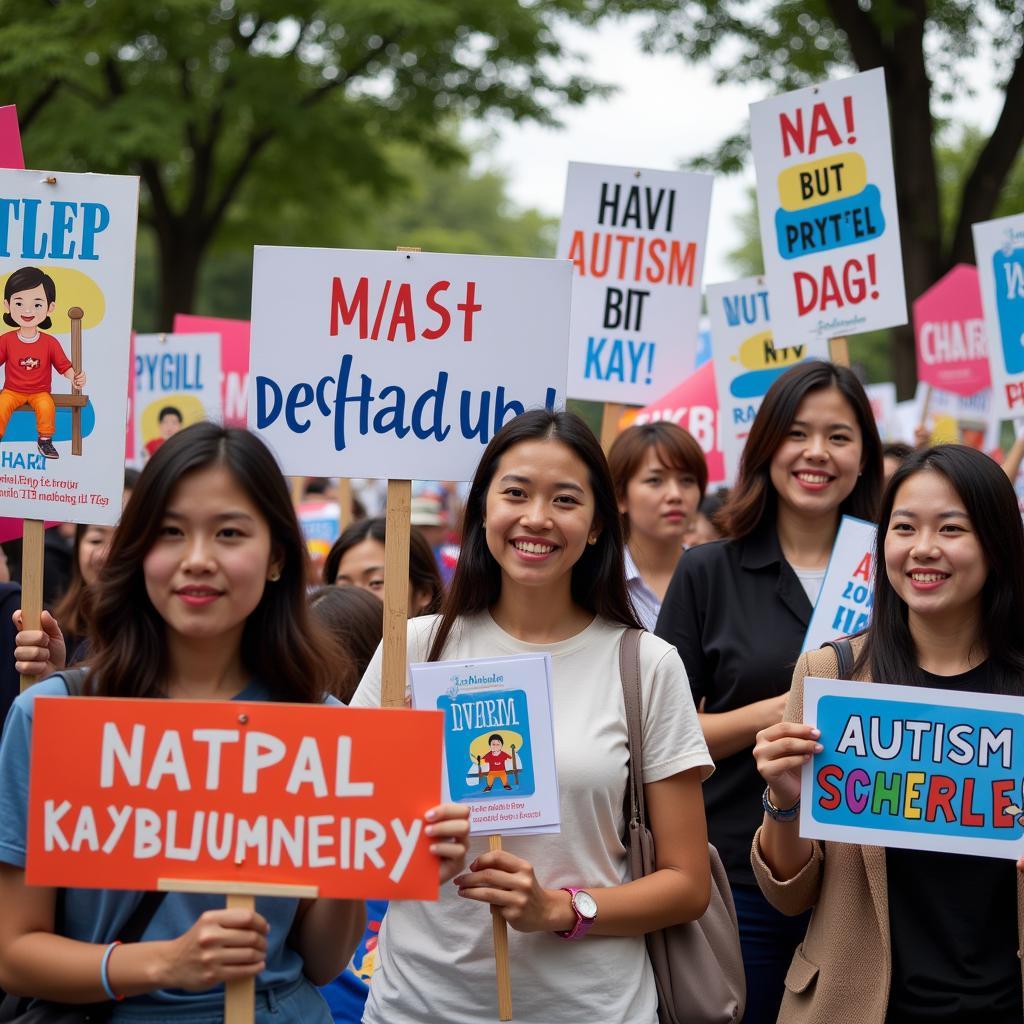The intersection of ASEAN and autism spectrum disorder (ASD) presents unique challenges and opportunities. With its diverse cultures and varying levels of development, Southeast Asia is home to millions of individuals with ASD and their families navigating a complex landscape of awareness, support, and inclusion.
Navigating ASD in a Diverse Region
The ASEAN region, comprised of 10 member states, boasts a rich tapestry of cultures, languages, and socioeconomic realities. This diversity, while a strength, also poses challenges in addressing the needs of individuals with ASD.
One key challenge is the varying levels of understanding and awareness surrounding ASD. In some ASEAN nations, traditional beliefs and stigma can hinder early diagnosis and intervention. Families may face cultural barriers, leading to feelings of isolation and shame.
The State of ASD Awareness and Support in ASEAN
While challenges exist, the ASEAN region has made strides in promoting ASD awareness and support. Several member states have implemented national plans or policies aimed at improving services for individuals with ASD.
 Southeast Asian Autism Awareness Event
Southeast Asian Autism Awareness Event
For instance, Singapore has established a comprehensive system of early intervention programs and support services. Similarly, Malaysia has seen the emergence of numerous NGOs dedicated to advocating for the rights of individuals with ASD and providing support for their families.
Breaking Down Barriers: Promoting Inclusion and Acceptance
One of the most crucial aspects of addressing ASD in ASEAN is fostering a culture of inclusion and acceptance. This requires a multi-faceted approach, involving governments, healthcare professionals, educators, and the community at large.
 Inclusive Classroom in ASEAN
Inclusive Classroom in ASEAN
Education plays a vital role in promoting understanding and empathy. By integrating ASD awareness into school curricula, future generations can develop a more inclusive mindset. Furthermore, training teachers to effectively support students with ASD in mainstream classrooms is essential.
Empowering Families and Individuals with ASD
Supporting families and empowering individuals with ASD is paramount. Access to affordable and quality healthcare, including early intervention services, is critical. Additionally, vocational training programs and employment opportunities tailored for individuals with ASD can foster independence and self-reliance.
 Vocational Training for ASEAN Youth with ASD
Vocational Training for ASEAN Youth with ASD
The power of community cannot be underestimated. Support groups and parent networks provide invaluable platforms for families to connect, share experiences, and access information.
Looking Ahead: A Brighter Future for ASEAN and ASD
Addressing the needs of individuals with ASD in ASEAN requires a sustained and collaborative effort. By prioritizing awareness, early intervention, inclusion, and family support, the region can pave the way for a brighter future where every individual, regardless of their neurodiversity, can thrive and reach their full potential.
Frequently Asked Questions about ASD in ASEAN
1. What are some common challenges faced by individuals with ASD in ASEAN?
Individuals with ASD in ASEAN often encounter stigma, limited access to quality services, and a lack of inclusive education and employment opportunities.
2. Are there any ASEAN-wide initiatives to support individuals with ASD?
While there are no specific ASEAN-wide initiatives solely focused on ASD, some regional programs address disability rights and inclusion more broadly.
3. How can I support individuals with ASD and their families in my community?
You can support individuals with ASD and their families by educating yourself about ASD, advocating for inclusive policies, and fostering a welcoming and accepting environment.
4. What are some resources available for families of children with ASD in ASEAN?
Several local NGOs and support groups within ASEAN countries offer resources, guidance, and support for families of children with ASD.
5. What is the outlook for individuals with ASD in ASEAN?
With increased awareness, improved access to services, and greater societal inclusion, the outlook for individuals with ASD in ASEAN is becoming more hopeful.
Need support or assistance? Contact us at Phone Number: 0369020373, Email: aseanmediadirectory@gmail.com, or visit us at Thôn Ngọc Liễn, Hiệp Hòa, Bắc Giang, Việt Nam. Our dedicated customer care team is available 24/7.

